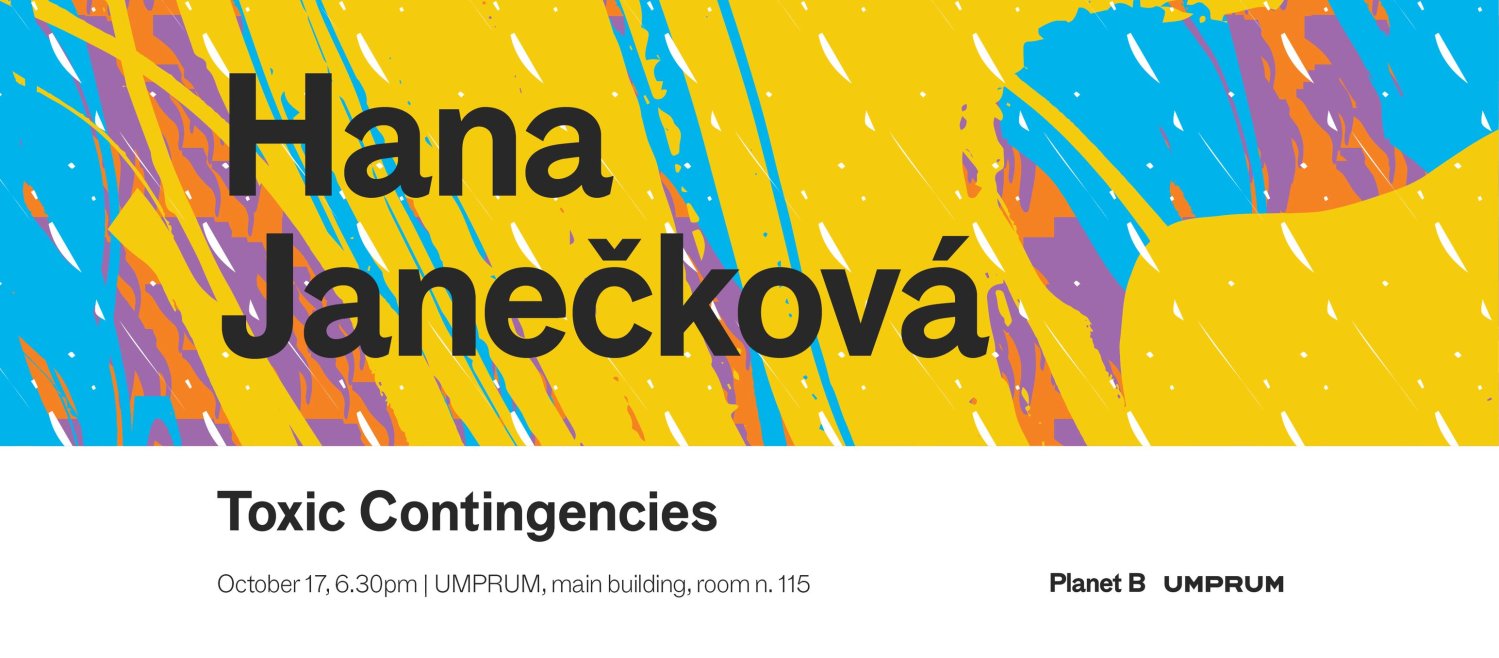The next public event on Planet B, the Module for Sustainability and Civilizational Issues, will be a lecture by curator and theorist Hana Janečková about toxicity and the work of contemporary artists dealing with this topic. All UMPRUM's students and employees as well as the general public are warmly welcome.
WHEN: Oct 17, 2022, at 6.30pm
WHERE: UMPRUM's main building, nám. Jana Palacha 80, room n. 115
The lecture will be held in English.
Toxic Contingencies
Curator and art historian Hana Janečková’s lecture Toxic Contingencies examines the notion of alliance in multispecies arrangements as a future-orientated ecofeminist project. Exploring recent artworks which use artist’s bodily waste in participative methods of working with the audience, Janečková traces the political potential of such embodied participation. Toxic Contingencies considers the notions of toxicity, trace and contamination in the work of artists Anicka Yi, Serina Tarkhanian and Anetta Mona Chisa & Lucia Tkáčová, who all use their own bodily fluids in their artistic processes. Though such processes show the shared ground between recent ecological and feminist projects, Janečková will also highlight how such methods of participative self-transformation and embodied healing in contemporary feminist artworks must be understood in the racialized and biopolitical contexts of the present.
****
Hana Janečková is a researcher and curator currently working on postanthropocentric feminism, technology and the politics of care in contemporary art. She is a Senior Lecturer in recent and modern art, moving image and curating at the Centre for Audiovisual Studies, Academy of Performing Arts, Prague. Her research project is centered on the politics of the body in contemporary art – with subjects such as health, sexuality, disability, reproduction, illness and care – and the way U.S. based artists and art institutions responded to these issues within the wider framework of transnational and decolonial feminisms. In 2021/2022 she conducted her research at Rutgers, Center for Women in the Arts and Humanities (New Jersey, USA) as a Fulbright Visiting Scholar.
****
Tato přednáška vznikla v rámci výzkumu financovaného stipendiem Fulbright Masaryk 2021–2022.
This lecture is one of the outcomes of a research funded by the Fulbright Masaryk Stipend 2021–2022
